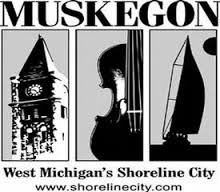You are currently browsing the monthly archive for June 2013.

Don’t miss the next Prosperity Agenda focused on Complete Streets in Michigan. Listen here today or tune in at 7 p.m. tomorrow, June 25th, for those who get NewsTalk 760 WJR Radio.
Dan Gilmartin of the Michigan Municipal League and co-host Dustin Block, news director for MLive Detroit, talk about Complete Streets and how these projects are taking hold in Michigan and transforming our communities with guests Suzanne Schulz, Planning Department Director for the City of Grand Rapids, Economic Development Program Manager for the Woodward Avenue Action Association, Jason Fowler, and John Lindenmayer, Advocacy and Policy Director for the League of Michigan Bicyclists and co chair of the Michigan Complete Streets Coalition.
The Healthy Environments Partnership and the Detroit Food & Fitness Collaborative Present the 2nd Round of Active Living Detroit Mini-Grants
The Active Living Detroit Mini-Grant program engages Detroiters in promoting activity friendly environments throughout Detroit. Mini-grants of up to $1000 will fund community projects aimed at promoting physical activity and environments that support active living and physical health.
Priority will be given to projects that:
- Engage community residents, particularly youth;
- Support complete streets concepts and implementation; and
- Incorporate Detroit Greenways.
Mini-grant dollars can be used for sustainable projects such as walking groups that bring local residents together for physical activity, fitness clubs organized at community centers, or efforts to improve street safety for bikers and pedestrians.
Application deadline: Wednesday, July 10, 2013
Application materials are also available on the Healthy Environments Partnership website: www.hepdetroit.org
If you have questions about submitting an application please contact:
Julia Weinert
734-763-0741
[email protected]
 Guest Post by Nancy Krupiarz, Michigan Trails and Greenways Executive Director
Guest Post by Nancy Krupiarz, Michigan Trails and Greenways Executive Director
More than 150 people attended two forums on May 29-30th to learn about Complete Streets and the impact it could have on quality of life for the City of Muskegon and its surrounding communities. Within the two forums there were engineers, health professionals, planners, road commissioners, elected officials, and business and community leaders as well as members of the general public. An early indicator for success was the fact that key partners that would be essential to a successful Complete Streets effort were involved early on in putting these events together. The partners included: West Michigan Shoreline Regional Development Commission, Disability Connection/West Michigan, County of Muskegon Public Health Department and CVB, Community Foundation for Muskegon County, and One in 21 – Healthy Muskegon County, an initiative of the Muskegon Rotary Club.
Steven Buchtel, Executive Director of Trails for Illinois and a former planner with the Active Transportation Alliance, presented on the triple bottom line that Complete Streets brings to a community – people, place, and profit. He also talked about the low-cost infrastructure changes, primarily through the use of paint, that is the “low hanging fruit” of implementing a Complete Streets plan.
Jason Bell, Zoning Administrator for Blue Island, Illinois and a principle of Bare Knuckle Planning, Inc., talked about the process they went through in putting together a policy that would end up ranking third in the nation by the National Complete Streets Coalition. He also emphasized the importance of the Cal-Sag Trail and the impetus it gave to the City to make Complete Streets connections.
Deb Alfonso from the Intermodal Policy Unit of Michigan Department of Transportation, talked about the Michigan Complete Streets law and how MDOT will work with communities with local Complete Streets policies.
Nancy Krupiarz, Michigan Trails and Greenways Executive Director, detailed some of the studies that illustrate the positive benefits that Complete Streets brings to a community and the difference between the types of policies that can be adopted.
Overall, the concept of Complete Streets seemed to be very well received among all the attendees and the county seems poised and ready to take the next steps towards getting a policy in place and implementation on the ground!















